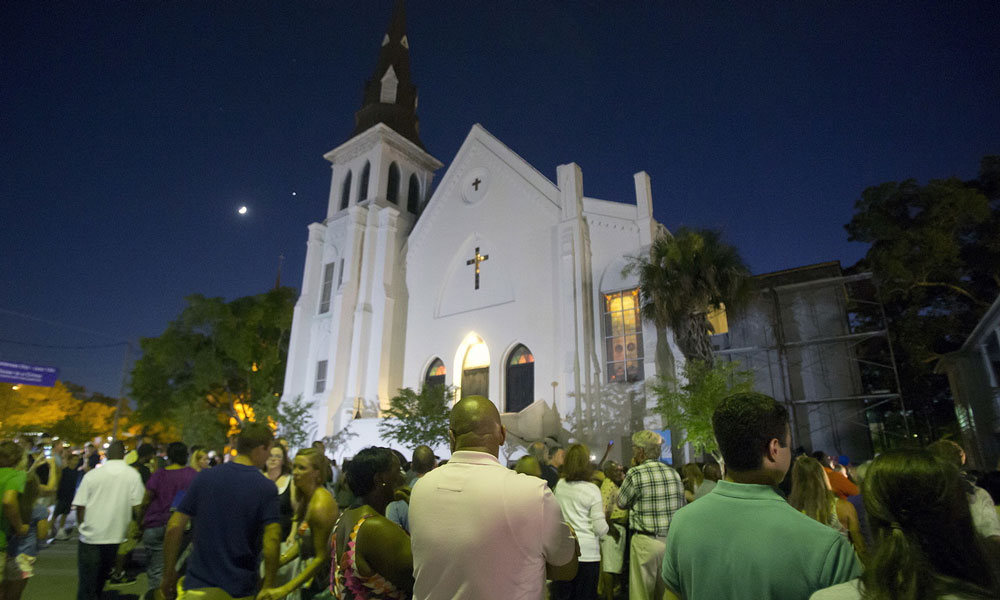
After Tragedy, Employers Need to Respond to Mental Health Needs, Counselors Say
It’s impossible to predict how employees will respond to tragic events like the recent shooting at a Charleston, South Carolina, church. But employers can prepare themselves to get staff through a difficult time by crafting a disaster plan that includes a mental health component.
More than a week after the massacre of African-American churchgoers at the Emanuel African Methodist Episcopal Church in Charleston, South Carolina, emotions are still raw. The impact of the racially motivated attack on a bible study group that left nine dead has reverberated around the country, reopening centuries-old wounds and reigniting the debate around an iconic Southern image.
In many ways, when something happens to other people we care about or a tragedy hits home with us, it’s often worse than when it happens to us directly because we’re out of control.
A wide swath of the American public seems deeply affected by the weight of the tragedy and the sensitivity of the racial issues surrounding it, making conversation about the event and its aftermath difficult, according to a senior executive at the American Counseling Association.
“In many ways, when something happens to other people we care about or a tragedy hits home with us, it’s often worse than when it happens to us directly because we’re out of control,” David Kaplan, Ph.D., CAE, chief professional officer at the ACA, said in an interview with Associations Now. “The term that we use is vicarious trauma.”
As people react to the tragedy, and as sensitive discussions around it spill into the workplace, employers have a responsibility to help employees through a difficult time, Kaplan said. To do that, associations should look to their disaster plan.
“From an organizational perspective, every association should have a disaster plan, and that plan should include a mental health component. This plan needs to be in place before anything like Charleston happens, because you’re going to need a lot of resources, and you can’t just make them up on the spot,” he said. “The question that this plan looks at, when either a person-made disaster like what happened in Charleston or a natural disaster occurs, is how will we meet the mental health needs of our staff?”
The answer is twofold: First, the mental health component of a disaster plan should include some form of access to professional counselors either by bringing in a group of clinicians—similar to a school bringing in additional support following a tragedy—or supplying a list of local clinicians that employees can seek out on their own terms, Kaplan said.
The second phase should focus on fostering those tough conversations that, while uncomfortable, are key to the growth of an individual and organization.
“With Charleston, an association could say, ‘Let’s take a look at our racial inequalities. How can we identify and correct any racial inequalities that are going on in our association?’” said Kaplan. “An association may have a team meeting; they may have a meeting of their employees; they may put together a working group on examining, identifying, and correcting any racial inequalities in the association with that working group being a broad spectrum of staff that will make recommendations to the organization.”
Not all staff will be receptive to the idea of group conversations around sensitive issues, and that’s all right, Kaplan said.
“There’s no one-size-fits-all when a traumatic event occurs,” he said. “Some will prefer to handle it individually, some will want a referral to somebody they can talk to but they don’t want anybody involved, and some will benefit from a group meeting.”
But having a plan in place to guide the association’s response is crucial.
“Put together a variety of ways that people can deal with the emotional aspect of this on their own terms. Include everything from holding voluntary group discussions to providing a list of resources and clinicians in your area who take your insurance,” Kaplan said. “At the end of the day, it’s about the individual and making sure they get the help they need to get through this difficult time.”
A vigil outside Emanuel African Methodist Episcopal Church in Charleston on June 20, 2015. (Carlo Allegri/Reuters)






Comments